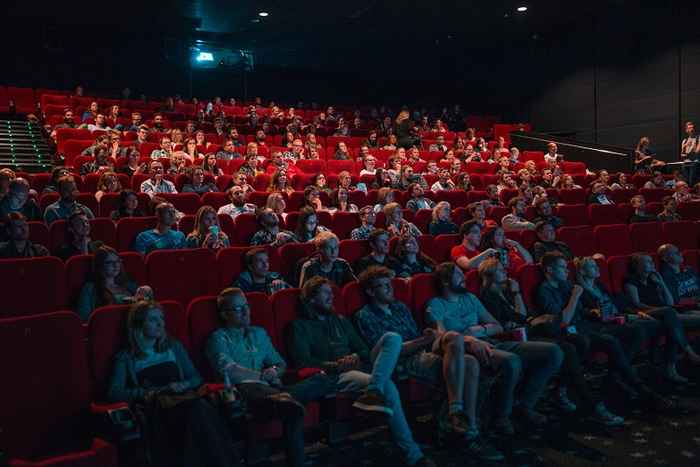
The study programme
The programme
Strategy is one of the tracks of the Master's Business Administration. During your Master's you will follow 5 general courses and 3 track-specific courses. You will finish with a thesis. If you have a fundamental drive to challenge the corporate environment, you can participate in one of our Honours programmes.
-
Ethics and the Future of BusinessPeriod 14
The purpose of this course is to explore the trends, core concepts, theories, and approaches of business ethics and corporate sustainability. The course is divided into a general part and a track-specific part.
-
Theories of StrategyPeriod 16
Get familiar with fundamental theories of strategy and dive into the nature of inter-firm competition. Where should companies compete, and how? And perhaps most importantly: how do firms achieve and sustain a competitive advantage?
-
Business Seminar and Managerial SkillsPeriod 1Period 2Period 34
-
Managerial SkillsPeriod 1Period 2Period 3—
-
Corporate Strategy and Organisation DesignPeriod 26
Learn about the different ways in which diversified firms can be efficient and effective. This course covers how firms can achieve their goals through cooperation with stakeholders and discusses the ethical implications of corporate decisions.
-
The Adaptive OrganisationPeriod 26
The times, they are always changing. Learn about how firms deal with change, especially in their business environment. The course emphasises innovation as crucial to surviving and thriving within a dynamic business environment.
-
Thesis Proposal StrategyPeriod 34
This course is meant to support you in writing you research proposal for you Master's thesis. During the course, you will learn how to change a general topic into a specific research proposal.
-
Business Seminar and Professional SkillsPeriod 4Period 52
To prepare you for your professional career, this course is a combination of a series of corporate guest lecturers in Royal Theatre Carré and an offering of professional skills training e.g. Presentation Skills, Programming with Python and more.
-
Restricted-choice electives: Professional SkillsPeriod 4Period 5—
-
Restricted-choice electives: Methods-WorkshopsPeriod 42
-
Restricted-choice electives: Analysis-WorkshopPeriod 52
-
Restricted-choice electives: Business Lab ElectivesPeriod 4Period 512
In The Business Lab, you can choose from a wide selection of electives we call business labs. Each one is connected to a corporate partner. You will be challenged to solve real-world business issues, working in international teams and presenting your solution to the company.
-
Master's Thesis StrategyPeriod 4Period 5Period 612
The Master’s thesis is the final requirement for your graduation. It is your chance to dive deep into a topic that you are enthusiastic about. A professor in your field of choice (track) will supervise and support you in writing your thesis.
Honours programmes
Highly motivated students can participate in the Master's Business Administration Honours programmes Sustainability or Data Driven Management. These challenging programmes are a great chance to stand out for future employers.

EasyGroup, EasyJet’s parent company, has to decide whether to enter the cinema market or not. What would you advise them? Does it make sense for EasyGroup to start running a cinema chain? Do EasyGroup’s resources apply to the cinema market? This is the type of real-world strategic decisions that managers have to deal with.

The theories we learn are challenging and give a multidimensional perspective on organisations. What I like in particular are the real-life business cases, which we work on in collaboration with well-known multinationals.Roeland van Noort - track Strategy Read about Roeland's experiences with this Master's
-
When do I need to select a specialisation track?
A specialisation track must be chosen when applying for the Master’s programme. However, track modifications are still possible until late October. The criteria for all tracks are identical and do not impact the likelihood of being accepted into the programme.
-
How many students are in the programme?
Our Master’s programme is selective and admits between 60-120 students per specialisation track.
-
What are the weekly contact hours?
Most courses have one 2-3 hour lecture and one 2-hour tutorial per week. Generally students take 3 courses at a time, so count on about 12-15 contact hours per week.
-
Will all lectures be held in person, or will there be options for online attendance?
Our preference is for in-person lectures. Certain sessions may be pre-recorded or follow a hybrid format. This entails preparing for Question and Answer (Q&A) sessions through video clips and readings, with subsequent discussions during meetings.
-
Is attendance compulsory for lectures, tutorials, and other sessions?
Attendance is usually not compulsory for lectures, but commonly for tutorials and other sessions. Students greatly benefit from being present and engaging in discussions with both the instructor and their classmates.
-
What is the typical method of assessment for most courses?
The majority of courses have a final written on-site exam. Most courses have additional assessment methods, including oral presentations, developing research proposals, conducting experiments and writing up results. Finally, some courses grade active participation. This is reflected by attendance and activity in tutorials and online assignments.